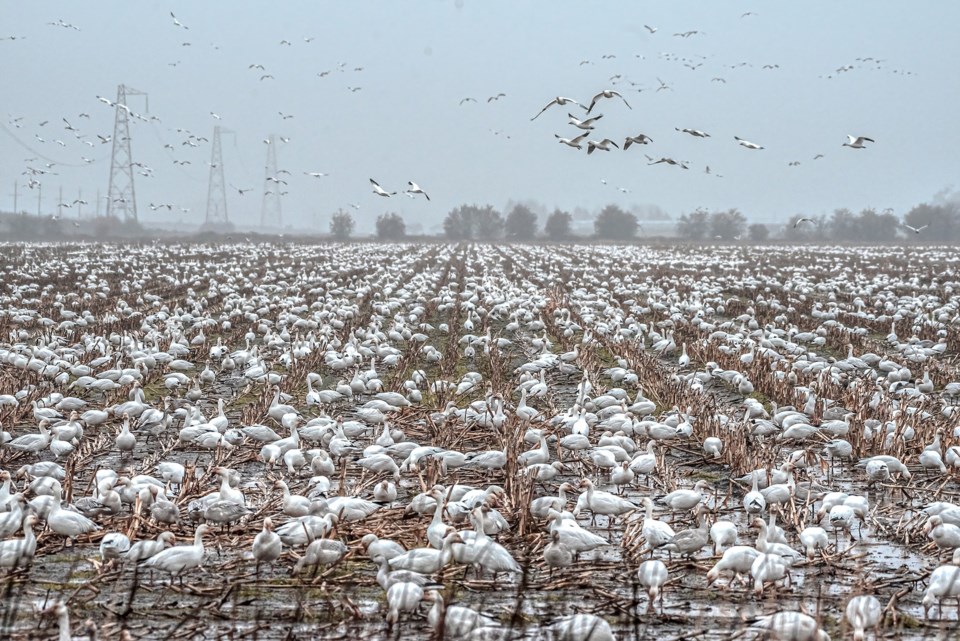Editor:
Re: Deltans in awe of snow geese sightings
Winter in British Columbia signals the returns of millions of migrating birds to our province. This year's return of an estimated 200,000-plus Lesser snow geese to the Fraser Delta highlights B.C.'s importance in maintaining their health and sustainability.
While the return of such large numbers speaks to their success in breeding, their numbers are not without concern.
Farmland in the region, specifically viable farmland that helps feed returning birds such as the Lesser snow goose, decreases as we continue to lose land to development. More and more farmers in the region are converting to crops that provide no benefit to migratory.
Urban expansion and agricultural changes are devouring critical habitat in the province. Eighty per cent of coastal wetlands in the region have been altered or destroyed. Waterfowl will find no usable agricultural land in the Fraser River Delta in 25 years at current crop conversion rates. The increased numbers of migratory birds combined with a dwindling viable foraging habitat puts immense pressure and financial hardship on local farmers.
Ducks Unlimited Canada in B.C. aims to conserve 21,000 acres of wetlands and waterfowl-friendly agricultural lands on the Pacific Coast. The goal is to work closely with governments, other non-profits organizations, industry, and private landowners.
DUC and its partners work to fund cover crop programs that allow farmers an effective way to lure waterfowl to alternative food sources across the landscape. This helps reduce the amount of damage to perennial forage fields, impacting a farmer's bottom line. Cover crops can be a win-win technique to lessen the damage caused by wintering waterfowl while improving soil and farm productivity – and providing vital habitat. Additional means of supporting croplands in the face of such heavy grazing, such as advances in nutrient and soil conservation, are also needed.
Currently, the Ducks Unlimited Canada and the Delta Farmland and Wildlife Trust, Environment Canada and Climate Change, Delta Agricultural Society, BC Waterfowl Society, Wildlife Habitat Canada, Habitat Conservation Trust Foundation, and the Cities of Delta and Richmond contribute to the cover crop program's funding.
Since the program began, 33,210 hectares of cover crops have been planted, and more than $3.7 million has been disbursed to Delta and Richmond's farming communities to support this sustainable practice, according to Drew Bondar, Executive Director of the DFWT.
These partnerships help us protect, secure, and restore a wetland policy that will protect migratory bird habitat, especially in the Fraser Delta. However, these programs are only effective when there is enough farmland to protect. Our partners at the DFWT completed a survey, examining the extent and intensity of waterfowl grazing on winter cover crop fields. Of the 110 cover crop fields included in the study, all but two were affected by grazing from returning wintering waterfowl. More concerning, 50 per cent of the fields saw complete grazing to the soil surface.
We need continued commitments from federal, provincial, and local governments that protect agricultural lands in the Fraser Delta so that returning migratory birds continue to be a welcome sight to all who live in the region.
Sarah Nathan
Manager, Provincial Operations for B.C.
Ducks Unlimited Canada



